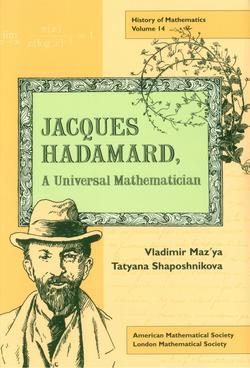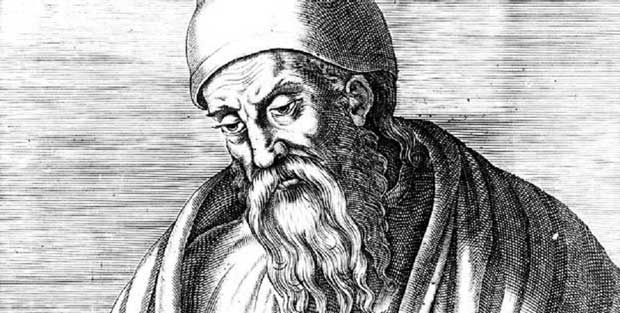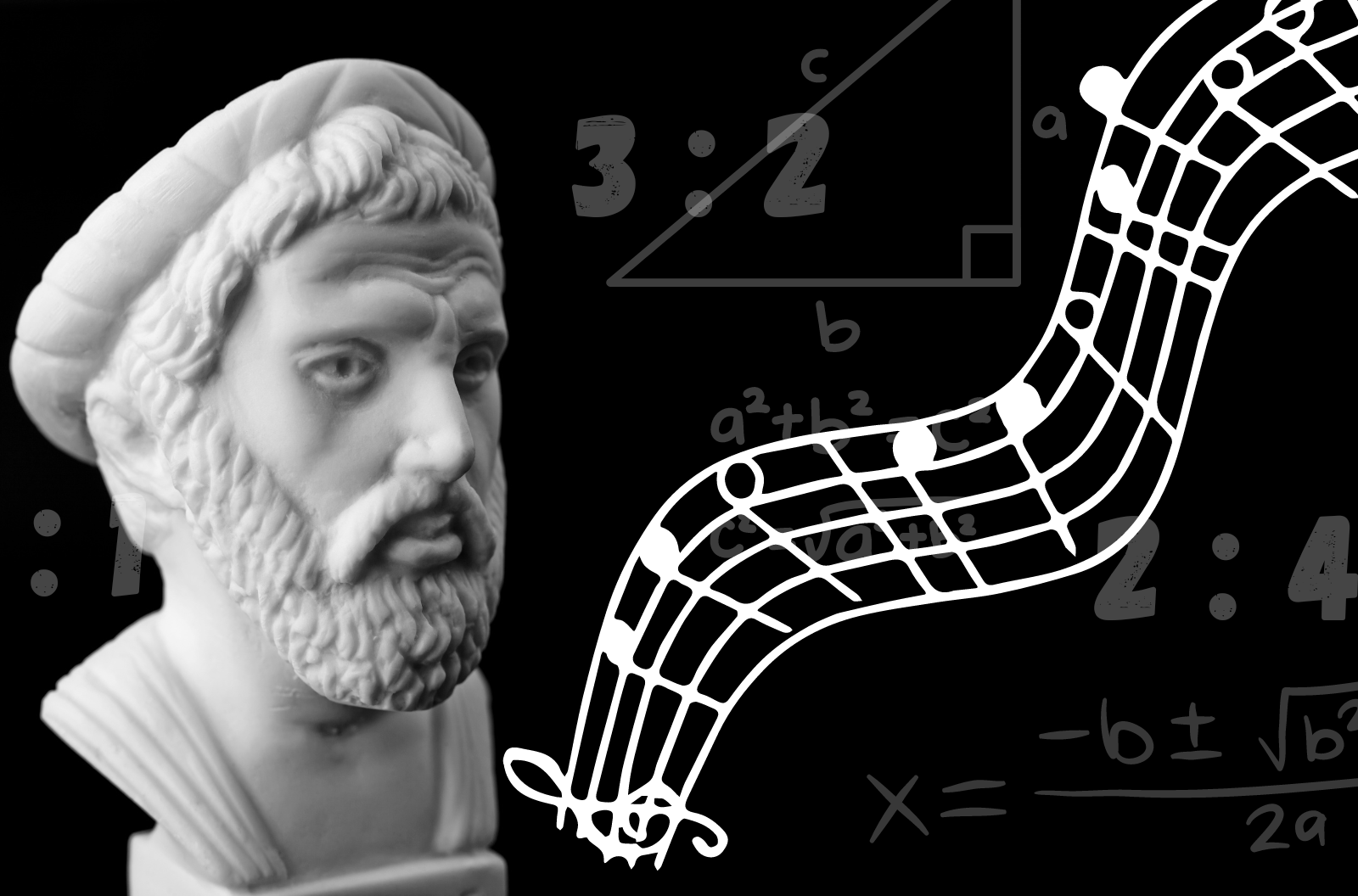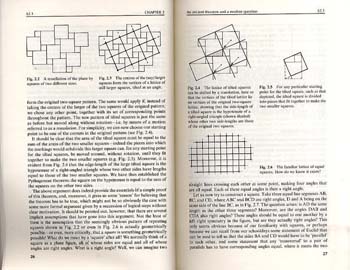Henri Poincaré: The Mathematical Genius Who Revolutionized Modern Thought
Introduction
The French mathematician, physicist, philosopher, and engineer Henri Poincaré (1854-1912) is widely regarded as one of the most influential and versatile thinkers of the late 19th and early 20th centuries. His profound contributions to various fields, including mathematics, mechanics, and cosmology, laid the groundwork for modern science and profoundly impacted the way we understand the universe. Born on April 29, 1854, in Nancy, France, Poincaré's journey began with a childhood marked by a love for science and a natural curiosity that would define his entire academic and professional life.
Early Life and Education
Henri Poincaré was born into a family of scholars. His father, Étienne Poincaré, was a professor of sciences, and his mother, Augy, came from a family of lettered and intellectual men. This environment, steeped in intellectual pursuits, nurtured young Henri's love for the sciences and mathematics. He attended Lycée Louis Lumière in Nancy, where his academic prowess became evident from an early age. In 1872, Poincaré enrolled at École Polytechnique in Paris, where his natural aptitude for mathematics and his burgeoning interest in the field were solidified.
Academic and Professional Career
After graduating from École Polytechnique, Poincaré furthered his studies at École des Mines, where he received a degree in physics and engineering. In 1879, Poincaré secured a teaching position at the University of Montpellier, and his career quickly took shape. He moved to a professorship at the University of Caen in 1880 and then to the University of Paris in 1881. However, his most significant academic and professional recognition came in 1881 when he was appointed a professor at the University of Paris Sorbonne, where he taught mathematical analysis, astronomy, and probability theory. It was during his time at the Sorbonne that Poincaré produced some of his most groundbreaking work, significantly influencing the future of modern science.
Mathematical Achievements: The Beginnings of Chaos Theory
Poincaré's mathematical genius is perhaps best illustrated through his contributions to the theory of dynamical systems, particularly in the realm of chaos theory. In 1887, he presented a prize to the world with the Poincaré Prize, which was awarded for a solution to the three-body problem, a classical physics problem concerning the movement of three gravitationally interacting bodies. Although the problem proved to be more complex than initially thought, Poincaré's innovative approach and methods laid the groundwork for the understanding of chaotic systems.
In 1881, Poincaré published a seminal paper titled "Sur les equations de la physique mathématique," where he explored the conditions under which the solutions to a set of differential equations are unique and stable, or in other words, do not diverge or converge to a fixed point. This work, along with his 1889 essay "Les méthodes nouvelles de la mécanique céleste," opened the door to the study of complex systems and the concept of unpredictability in deterministic systems, which became the foundation of chaos theory. His ideas have since been applied extensively in various fields, from meteorology to economics.
Geometrical Innovations and the Poincaré Conjecture
Another significant contribution by Poincaré is his work on topology, a branch of mathematics that deals with the properties of space that are preserved under continuous transformations. In 1881, Poincaré introduced the concept of the Poincaré homology sphere, an intriguing shape that challenged the prevailing beliefs about space. His conjecture, now known as the Poincaré Conjecture, stated that any compact, simply connected three-dimensional manifold without boundary is topologically equivalent to a three-dimensional sphere. This conjecture remained unproven for over a century and captivated mathematicians worldwide.
Despite his groundbreaking contributions, Poincaré's ideas were not always accepted immediately. His work on the Poincaré homology sphere and the Poincaré conjecture were initially controversial, as they seemed to contradict the established topological principles of the time. However, Poincaré's persistence in challenging traditional theories and his innovative use of intuitive geometric and symbolic analysis were ultimately critical in the development of modern topology.
Interdisciplinary Impact: Kinetic Theory and Quantum Theory
Poincaré's influence extended beyond mathematics into other scientific disciplines. His work on the kinetic theory of gases and electromagnetism significantly contributed to the understanding of how these physical phenomena operate. In 1884, he published a paper on the theory of gases, where he laid the groundwork for the kinetic theory of thermal properties of matter. His insights into the behavior of molecules and the statistical mechanics of gases paved the way for the development of the kinetic theory of gases, which is crucial in the field of statistical mechanics and thermodynamics.
Additionally, Poincaré's research on the Lorentz transformations, a set of equations that describe the relationship between space and time in different inertial frames of reference, played a pivotal role in the development of Einstein's theory of special relativity. Poincaré's work in this area predated Einstein's famous 1905 paper on relativity by several years, and his ideas laid the foundation for the development of modern physics. Despite not being credited as the primary developer of the theory, Poincaré's contributions are undoubtedly significant and are often cited as foundational to the development of quantum theory and general relativity.
Philosophical Contributions: The Nature of Science and the Role of the Individual
Henri Poincaré's contributions to the philosophy of science are no less significant than his mathematical and physical achievements. He pondered deeply on the nature of scientific discovery and the place of humans in the process of scientific advancement. His essays and lectures, particularly "Science and Method" (1908), challenged the notion that science was purely objective and mechanical. He argued that scientific progress was not just a matter of following logical steps but involved a certain amount of intuition and creativity.
In "Science and Method," Poincaré discussed the role of the scientist as a constructor of models rather than merely a recorder of data. He emphasized the importance of "the choice of the coordinate axes" in scientific inquiry, suggesting that the way one looks at a problem can significantly influence its solution. This philosophical stance has been influential in the development of modern theoretical physics and continues to shape the way scientists approach new theories and models.
Legacy and Recognition
Poincaré's legacy extends beyond his lifetime, influencing generations of mathematicians, physicists, and scientists. His comprehensive approach to problem-solving and his insistence on the importance of intuition and creativity in mathematics are still relevant today. Poincaré's work in chaos theory, his contributions to topology, and his philosophical insights have become fundamental to the way we understand complex systems and the nature of scientific inquiry.
Recognition of Poincaré's contributions came late in his life. He was awarded the Gold Medal of the Royal Astronomical Society in 1887 and the Copley Medal by the Royal Society in 1905. He was also elected to the French Academy of Sciences, a testament to his widespread impact on the scientific community. Poincaré's life and work continue to inspire and awe, showcasing the enduring power and beauty of mathematical thinking.
Conclusion
Henri Poincaré's life and work serve as a testament to the potential of human thought and the power of curiosity. Through his groundbreaking contributions to mathematics, physics, and philosophy, he transformed the way we understand the universe. His legacy is not only in the theories that bear his name but also in the way he encouraged innovation and the integration of multiple disciplines. Poincaré's life and the impact of his work remain a source of inspiration for thinkers and scientists around the world.
Legacy and Recognition Continued
In addition to the honors he received during his lifetime, Poincaré's recognition continued posthumously. He was awarded the Prix Bordin in 1887 for his work on the three-body problem, and the Prix Bordin in 1890 for his work on the stability of the solar system. His contributions to the field of astronomy were further acknowledged in 1906 when he received the Prix Jules-J UICollectionViewCell. His work on the Poincaré disc and the Poincaré sphere has had a lasting impact on the field of topology, and the Poincaré conjecture, a problem in the field of three-dimensional topology, would remain a central question in mathematics until it was finally solved by Grigori Perelman in 2003. This achievement has been recognized with the Fields Medal, which is often referred to as the Nobel Prize of mathematics.
Interdisciplinary Applications: From Meteorology to Engineering
The principles Poincaré developed found applications well beyond the realm of pure mathematics and theoretical physics. His work on chaos theory and the concept of deterministic systems influenced meteorologists, leading to the development of chaos theory in weather prediction. His methods for understanding the behavior of complex systems have found applications in various fields, including economics and biology. For instance, in the field of economics, Poincaré’s theories can be applied to understand the complex interactions within markets and the unpredictability of financial systems. His work also influenced the development of fractal geometry, a concept pioneered by Benoît Mandelbrot, who used Poincaré's ideas to describe natural phenomena and patterns in a new way.
In engineering, Poincaré’s insights into dynamics have been crucial for the design and analysis of mechanical systems. His contributions to the understanding of chaotic systems have led to more robust and reliable engineering designs, particularly in areas such as vibration analysis and control systems. Engineers now use the principles of chaos theory to predict and mitigate potential issues in complex mechanical systems, ensuring their reliability and efficiency.
Teaching and Mentorship: Impact on Future Mathematicians
As a professor, Poincaré was not only a great mathematician but also a dedicated and inspiring teacher. He was known for his ability to make complex mathematical concepts accessible and for his encouragement of student inquiry. His classes at the University of Paris were legendary, and many of his students went on to make significant contributions to mathematics and science. One of his most notable students, Jacques Hadamard, went on to become a prominent mathematician himself, and their relationship has been the subject of several biographical works.
Through his teaching, Poincaré helped to shape the next generation of mathematicians and scientific thinkers. He encouraged his students to think independently and creatively, fostering an environment where they could explore new ideas and push the boundaries of their knowledge. His influence extended beyond his immediate students, as the students of his students continued to build upon his foundations, creating a lineage of great mathematicians.
Biographical Accounts and Legacy
The life and work of Henri Poincaré have been the subject of numerous biographies and scholarly books. Mathematician and physicist John Derbyshire wrote "Unknown Quantity: A Real and Imaginary History of Algebra," which includes a detailed account of Poincaré’s mathematical journey and his impact on the field. Similarly, Barry P. Mazur’s "Inventing the Infinite: The Origins of Mathematical Analysis and the Physical Foundations of the Infinitesimal" explores the philosophical and historical context of Poincaré’s work.
Popular biographies like "The Math Gene" by Keith Devlin offer modern readers a relatable and accessible look at the life of Poincaré and his contributions to modern mathematics. Additionally, the documentary film "Jules Verne's Journey Through France" and the biographical drama "The Great Math Mystery" highlight Poincaré’s life and work, making them accessible to a broader audience. These works continue to popularize Poincaré’s legacy and inspire new generations to explore the wonders of mathematics.
Final Reflections on Poincaré's Life and Thought
Henri Poincaré's life and work stand as a testament to the power of mathematical and scientific inquiry. His interdisciplinary approach and deep philosophical insights have had a profound impact on the way we understand the world. Through his contributions to chaos theory, topology, and engineering, Poincaré has left an indelible mark on the fields of mathematics and the sciences at large. His legacy, however, goes beyond the confines of these disciplines; it lies in the way he encouraged a spirit of exploration, innovation, and cross-disciplinary thinking.
As the world continues to face complex challenges, the lessons of Poincaré’s life remain relevant. His emphasis on the importance of intuition and creativity in the pursuit of knowledge serves as a call to embrace the unknown and to push the boundaries of what is possible. Just as Poincaré did, modern scientists and thinkers must remain open to new ideas and approaches, ensuring that the legacy of this remarkable mind continues to inspire and guide us towards a deeper understanding of the universe and our place within it.
Final Reflections and the Enduring Impact of Poincaré
Henri Poincaré’s contributions to our understanding of the universe are vast and enduring, with his theories and methods continuing to influence modern scientific thought. His work on the three-body problem and the concept of chaos theory paved the way for the development of complex system studies and has practical applications in fields ranging from meteorology to financial modeling. His mathematical innovations, such as the Poincaré conjecture, have challenged and inspired generations of mathematicians, leading to breakthroughs that might not have been possible without his foundational work.
Moreover, Poincaré’s philosophical insights into the nature of scientific discovery and the process of mathematical proof have had a profound impact on how we approach problems and theories. His belief in the importance of intuition and the role of the mind in scientific inquiry resonates with modern cognitive studies and neuropsychology. The Poincaré disc and the Poincaré sphere, introduced in his work on topology, continue to be used in advanced mathematical research and have applications in areas such as computer graphics and geometric modeling.
Modern Applications and Current Research
Today, Poincaré’s theories and methods are applied in a multitude of modern scientific and technological fields. In astrophysics, his work on the stability of the solar system and the dynamics of celestial bodies has been crucial in the development of our understanding of the solar system and beyond. The principles of chaos theory, which he first described, are now essential in climate modeling and weather forecasting, helping scientists predict and manage the effects of climate change with greater accuracy.
Engineering and technology have also benefited significantly from Poincaré’s ideas. The principles of chaotic systems have been used to improve the design and efficiency of mechanical systems, from the control of robotic arms to the optimization of vehicle suspension systems. In biology, Poincaré’s insights into complex systems have been applied to the study of ecosystems and the behavior of populations, leading to a better understanding of ecological dynamics and sustainability.
Educational Influence and Public Engagement
Henri Poincaré’s influence extends to the educational sphere. His teaching methods and the way he encouraged students to think independently have inspired educators to promote critical thinking and problem-solving skills. Books and articles by modern mathematicians continue to draw from Poincaré’s legacy, helping to engage students and the general public in the beauty and complexity of mathematics. The popularization of Poincaré’s work through documentaries and biographies has helped to make his theories accessible to a wider audience, fostering an appreciation for the depth and elegance of mathematical concepts.
Public engagement with mathematics is crucial in today’s world, and Poincaré’s life story serves as a powerful narrative. His journey from a curious child to one of the most influential scientists in history demonstrates the transformative power of education and intellectual curiosity. Events and lectures celebrating his contributions and legacy help to inspire students and educators to pursue their own scientific inquiries and to continue pushing the boundaries of human knowledge.
Conclusion
Henri Poincaré’s life and work continue to influence and inspire us in profound ways. From the development of chaos theory and the study of complex systems to the education of future scientists and the popularization of mathematical concepts, Poincaré’s contributions are vast and enduring. His legacy is not just in the theories and methods he developed but in the way he approached the pursuit of knowledge, fostering a spirit of curiosity and innovation that continues to drive scientific and intellectual advancement.
As we stand on the shoulders of giants like Poincaré, we are better equipped to tackle the challenges of the future. His ideas continue to shape the way we understand the world, from the dynamics of the cosmos to the behavior of complex systems. Henri Poincaré’s life is a testament to the power and beauty of human thought, and his legacy will continue to inspire generations to come.





















Comments